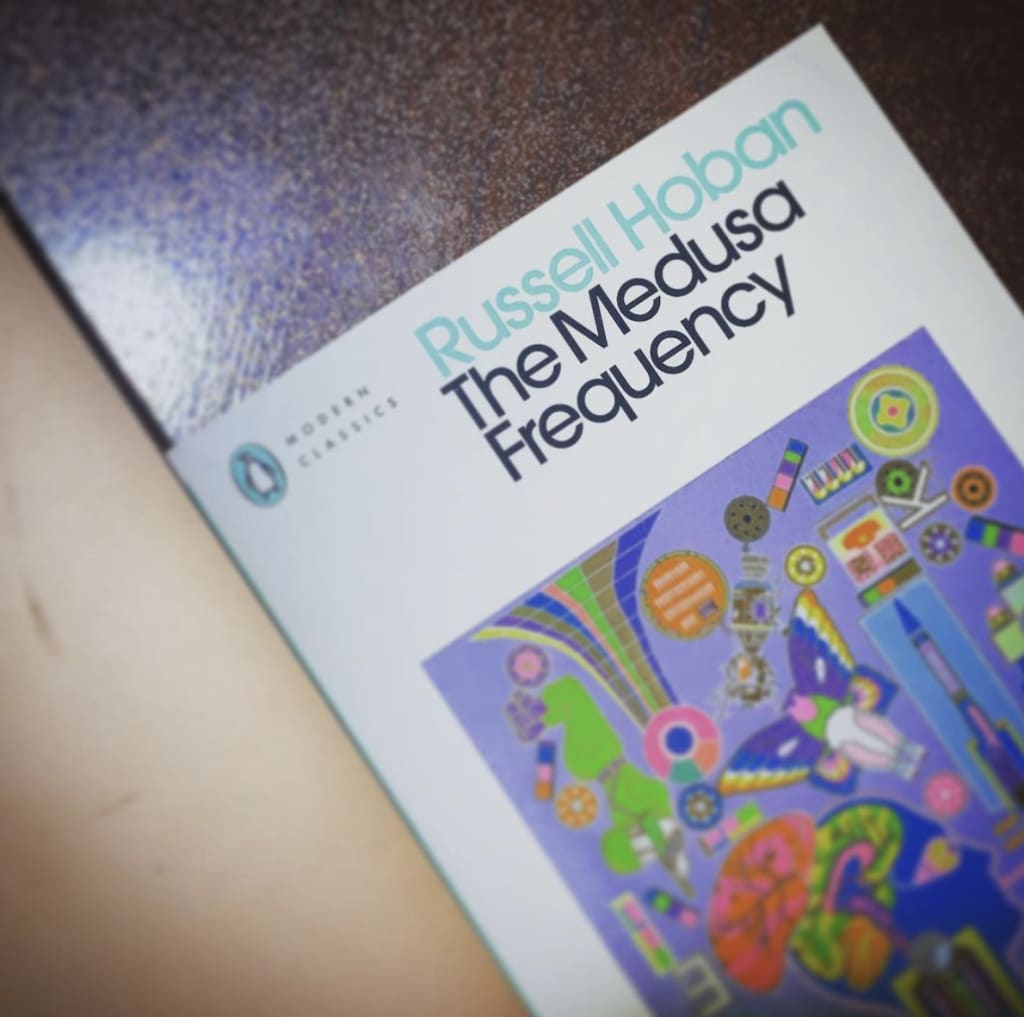Book Review: "The Medusa Frequency" by Russell Hoban
5/5 - Medusa, the Kraken and many more...

I read a lot of stuff about Greece and Rome, I love to read not only the myths translated but also the way in which they have been reinterpreted for modern use into stories and tales of the modernist era. Tales of Ovid, Troy and more, the books of monsters and myths have always fascinated me and the way in which they manage to give us some of the most memorable stories of all time keep me interested. We have heroes like Achilles and Patroclus and then, the Gods such as: Zeus, Hera and Athena, Aphrodite and Poseidon. But then, there is an even darker side to all of this and that is the stories of monsters. From Medusa, to the Kraken, from Greece to Switzerland and all the way through to the paintings of Vermeer and the legends of Hermes and Orpheus - this book has everything including the narrator who is incoherently obsessed with these things. There have been several interpretations of the book including the fact that many people have concluded that Medusa is the only faithful woman in the universe and so the narrator must worship her and her alone. Let us dive deeper into the fact that this book is one of the best things I have read of its genre for a long time.
The writing is an amazing and has this clear sense of character and atmosphere. It has an incredible sense of itself as a horror novel and an adaptation of a myth in which modernism has been cleanly mixed within the storyline.
“The beginning was the terror. Whose was the terror? The terror was itself and the terror was of itself. There was nothing else, there was no one to hold the terror, there was only the terror. Terror of what? Terror of what might be, of universes and worlds that might be, and the illusion of time. What came then?”
The start of the story sets up the dialogue. The difference between the way in which the character and the monster contemplate the differences between each other and when we see it on the paper, the Kraken (much like if you have ever read the dialogue of ‘Death’ from the Discworld Series) speaks in capital letters, a terrifying roar that echoes within the mind of the reader.
“I am the Kraken, ancient of the deeps, monstrous cephalopod, great head at the centre of my miles of writhing tentacles in the blackness of the ultimate deep; the Kraken, my dark mind wild with the terror of itself, shuddering, writhing, afraid to sleep, afraid to dream, but sleeping age-long and dreaming of immensities, of bursting and transitions and unimaginable states of being, dreaming a universe in which there is such a thing as the Kraken, dreaming that I am the Kraken.”
The very speech of the Kraken makes you shiver because of the way in which it not only introduces itself with such force, but also because of the way it carries this speech as if it is law. When the narrator falls in love with the idea of faithfulness only being achieved through Medusa, we can definitely see that he is under the influence of the great monsters of old. A definite characteristic of this writer is that there is a clear difference between writer and narrator though both of them are writers. A short book, it has balance in the way it is both terrifying and intense in depiction of monstrosity as something that cannot be ignored, cannot be defied and cannot, by any means and in any way, be destroyed.
About the Creator
Annie Kapur
200K+ Reads on Vocal.
English Lecturer
🎓Literature & Writing (B.A)
🎓Film & Writing (M.A)
🎓Secondary English Education (PgDipEd) (QTS)
📍Birmingham, UK






Comments
There are no comments for this story
Be the first to respond and start the conversation.